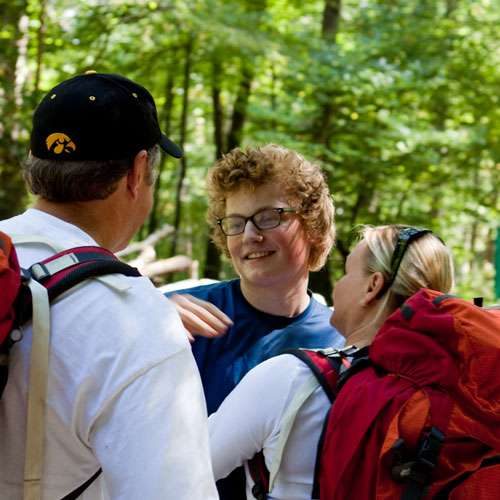Many parents can pinpoint the exact year that their child changed from wanting to sit in their lap and read stories to wanting nothing to do with them. And it is not surprising that it is usually in the pre-teen and teen years. Conflict with your teenager may seem inevitable. The fact that teens can be challenging is not new information to parents. What we can do as parents is work to understand why teenage rebellion and defiance happen and how we can best support them during this tough transition into adulthood.

Image By TheCarColony
What Causes Teenage Rebellion?
There is not one reason that teenagers rebel. There are many different developmental and hormonal changes that can come together and can sometimes create a perfect storm of emotions. This can present as mood swings, heightened emotional responses, or anger. The prefrontal cortex of the brain, the one that is responsible for impulse control and understanding outcomes and consequences is not fully developed in the teen years. In a time when teens are craving more freedom, they do not yet have the capability to fully understand the consequences they may face.Teenagers long to assert their individuality and break free from their childhood identity as they develop their own opinions and worldviews, all while navigating the challenging waters of middle and high school relationships.
How to Deal with Your Defiant Teen
The first thing to understand is that what looks like rebellion, is often developmentally appropriate boundary-pushing that teens need to experience before they leave home to go out on their own. But there is a difference between pushing boundaries and outright defiance. If your teen is exhibiting extreme defiance, here are a few things to think about:
- Is your teen reacting to a specific situation? Maybe they are struggling with bullying at school and when they come home, instead of explaining what is happening, they feel overwhelmed and they lash out. It is important to talk with your teen to address any underlying concerns.
- Could your teen have an undiagnosed disorder, like Oppositional Defiant Disorder? if your child or teenager has a frequent and persistent pattern of anger, irritability, arguing, defiance, or vindictiveness toward you and other authority figures, they may have oppositional defiant disorder. If that is the case, a diagnosis and treatment with a clinical professional can help.
- Can you give them room to make mistakes? It is normal, and even healthy for your teen to make mistakes. Teens need that experience with independence to grow. That is how they will learn, not only how to make a better choice in the future, but also their own limitations. Failure allows them to see that perhaps their decision-making process isn’t foolproof and that the people around them (like their parents) are a helpful resource in making future choices. There are ways we can let them “fail small”. For example, if they are late to soccer practice, maybe their coach won’t let them play in the next game. Or if they don’t turn in a paper, they will have to work harder to make up extra credit. But there are other behaviors that can have dangerous consequences if your teen makes those choices, like experimenting with drugs or alcohol. In these situations, it is important for parents to intervene quickly, perhaps with professional help.
Tips for calming teenage rebellion
A little defiance may be normal, but when it morphs into damaging, dangerous behavior, it’s time to put your foot down and change something. This can be accomplished in many ways, but here are a few to keep in mind:
- Keep Calm, Don’t Lose Your Cool: Defiant behavior can drive a parent mad. The constant bickering, eye rolling, and more can take a toll on one’s patience; it’s important to not blow up. Keeping calm and continuing to act respectful makes you the adult–the role model. Stooping to your son or daughter’s level by bickering or yelling back will just make them think that it’s okay.
- Include Your Son or Daughter in Deciding Consequences: Bringing your son or daughter into the process of coming up with a consequence for his/her actions can be extremely beneficial. It shows that you respect them and their input, making it easier for them to express how they feel to you.
- Notice When They Do Something Right: It can be easy to focus on the annoying, pesky things that your teen does and overlook the things they do right. By noticing and praising them for doing something well, it reinforces the behavior.
- It Won’t Happen Immediately: Changing behavior is a process, it takes time. Don’t expect your teen to suddenly halt their teenage rebellion because you had a little progress. You have to change your behavior, too. Be consistent.
Trails Carolina Can Help
Trails Carolina’s wilderness therapy program was founded with a singular goal – to help families reconnect, heal, and thrive. Over the years, our approach has been shown to produce lasting, positive outcomes, delivering on that mission.
Each child that enters our campus is unique and brings their own needs and challenges. Immediately, we get to work making sure they receive the support they need, starting by introducing them to the single-gender age-appropriate group they’ll be growing with.
These groups are led by experienced, licensed therapists who specialize in working with youth who fit their group’s profile exactly – and it shows. We also work to keep parents engaged along this powerful journey, empowering them to support and communicate effectively with their child when they return home. For more information please call (828) 414-2785.
Get started today
Contact us today to learn how Trails Carolina can help your family
Trails saved my daughter’s life. Amanda is an amazing human and a brilliant therapist. I am so grateful to her, Science Steve, and the other wonderful people who could reach my daughter at a time when I could not.
Margot Lowman August 2022
Great life changing experience for our son. After becoming addicted to gaming during covid he was very depressed. At Trails he experienced the wilderness, Science Steve, learning survival skills and top notch therapy and support etc… I highly recommend! This gave our son and our family a renewed family bond full of love and excitement about his bright future.
Winnifred Wilson July 2022
Outstanding clinical work and superb staff! There’s a great culture at this company and it shows with how they engage with families/clients.
Kristin Brace June 2022
Discover If Trails Is The Right Program For Your Child
Take our short online assessment and help us better understand how we can help your family.




